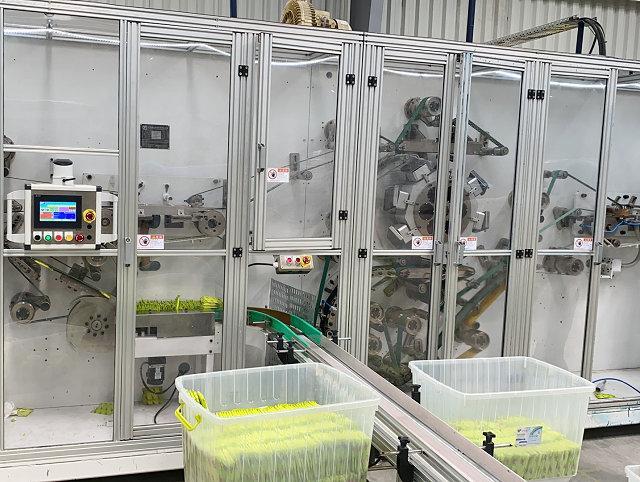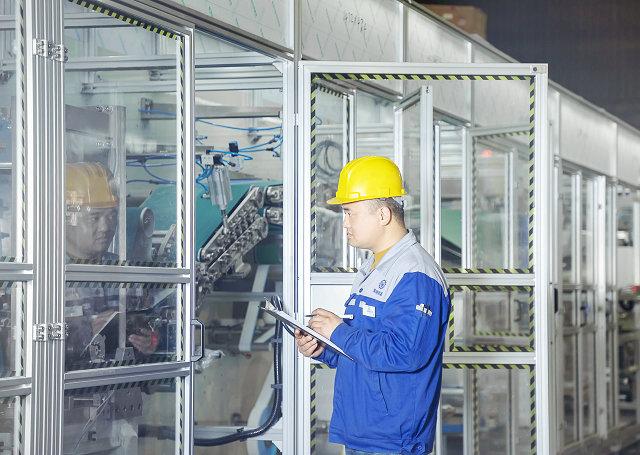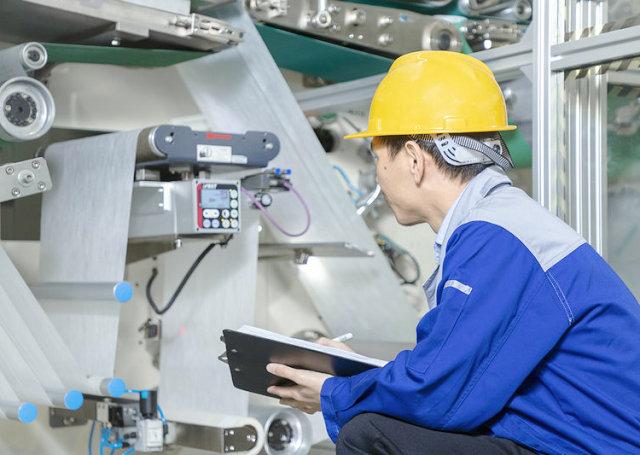Author:Haina Machinery Factory FROM:Diaper Machinery Manufacturer TIME:2024-12-07
In recent years, the concept of diaper machines for home use has gained traction among parents seeking convenience and efficiency in diaper management. These devices promise to streamline the process of diaper disposal, providing a cleaner and more organized solution for busy households. However, as with any product, it's essential to evaluate whether these machines are truly suitable for home use. This article delves into the functionality, benefits, and drawbacks of diaper machines, helping parents make informed decisions regarding their practicality for personal use.

Diaper machines are designed to simplify the disposal of used diapers. They typically work by sealing away the soiled diapers in a hygienic manner, often utilizing a combination of odor control features and compact storage solutions. Most models can accommodate various types of diapers, from disposable to cloth, making them versatile for many families. Understanding how these machines function is crucial for assessing their suitability for home use.
One of the main advantages of diaper machines is their ability to contain odors effectively. Many models are equipped with advanced sealing mechanisms that trap unpleasant smells, ensuring that your living space remains fresh even with multiple diapers disposed of in a short period. Additionally, diaper machines often come with built-in features that allow for easy disposal and minimal contact with waste, enhancing hygiene for parents and caregivers.

Another significant benefit is space efficiency. Diaper machines are generally designed to fit seamlessly into a nursery or bathroom, taking up minimal floor space. This compactness is particularly advantageous for families living in smaller homes or apartments. Furthermore, the convenience of having a dedicated machine for diaper disposal reduces the frequency of trips to the outdoor trash bin, which can be especially beneficial during late-night diaper changes.
While diaper machines offer various benefits, cost is an important factor to consider. Initial investments can vary widely, with some models being relatively affordable and others priced at a premium. In addition to the upfront cost, parents should also factor in ongoing expenses such as refill bags or cartridges, which may be necessary for optimal performance. Evaluating the long-term financial implications is crucial to determine if a diaper machine is a worthwhile investment.
For environmentally conscious families, the impact of using a diaper machine on waste management practices is a critical consideration. While these machines help contain odors and manage disposables efficiently, they may also contribute to increased plastic waste if primarily used with disposable diapers. Parents should weigh the environmental footprint of diaper machines against their benefits, considering alternatives such as cloth diapers or other eco-friendly disposal methods.
The user experience with diaper machines can vary based on the model and brand. Some machines are designed for ease of use, allowing quick disposal without complicated steps, while others may require more effort to operate effectively. Maintenance is another essential aspect to consider; regular cleaning and changing of refill bags are necessary to ensure optimal functionality and hygiene. Understanding the maintenance requirements can significantly affect a parent's decision to invest in a diaper machine.
Before committing to a diaper machine, it’s wise to explore alternative solutions. Traditional diaper pails, which also offer odor containment, may provide a simpler and less expensive option for some families. Additionally, parents might consider using compostable or biodegradable diapers, which can align better with eco-friendly practices while still minimizing waste. Evaluating these alternatives provides a broader perspective on the best approach to diaper disposal.
Real-life experiences from parents who have used diaper machines can provide valuable insights. Many users report satisfaction with the smell containment and ease of use that these machines offer, while others express concerns about the initial cost and ongoing maintenance. Reading reviews and testimonials can help prospective buyers gauge whether a specific model aligns with their needs and preferences, further informing their purchasing decision.

In conclusion, diaper machines present an intriguing option for modern parents looking to streamline diaper disposal. While they offer notable advantages such as odor control, convenience, and space efficiency, potential drawbacks like cost and environmental impact should not be overlooked. Ultimately, whether a diaper machine is suitable for home use depends on individual family circumstances, preferences, and values. By weighing the pros and cons and considering personal needs, parents can make an informed choice that best suits their lifestyle.
